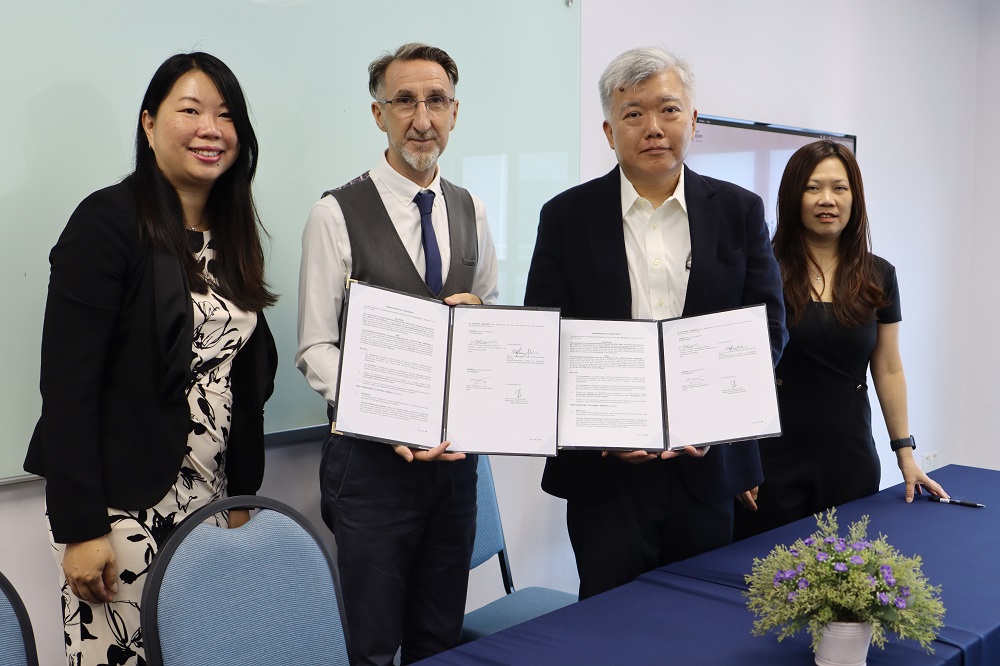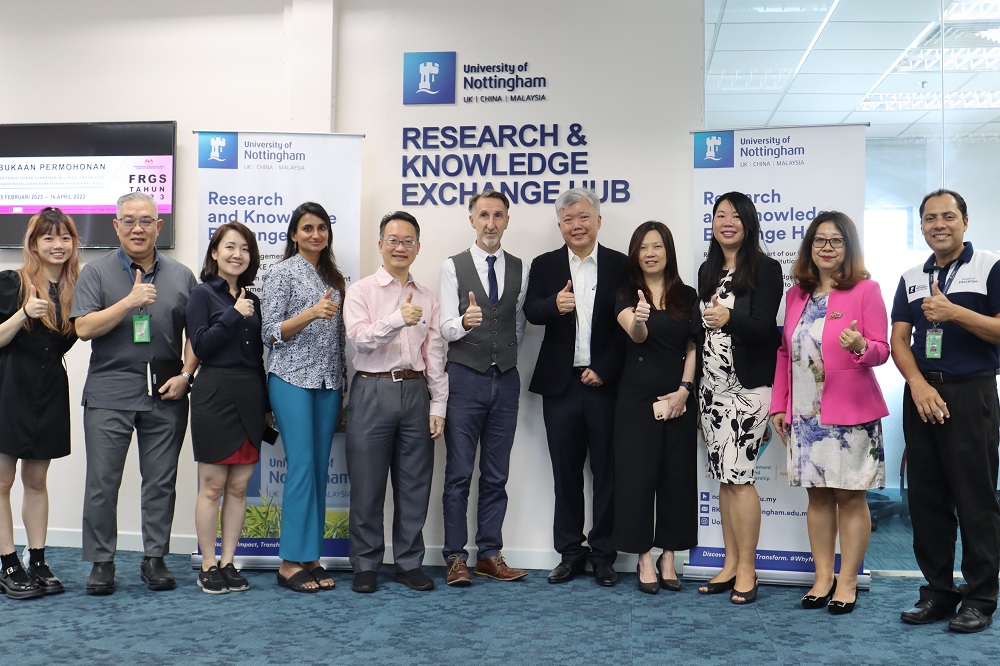
August 16, 2023, by Communications
University of Nottingham Malaysia Partners with Industry Players to Boost STEM Education in Rural Malaysia
The University of Nottingham Malaysia (UNM) has entered into a Memorandum of Agreement (MoA) with several industry players to promote and enhance STEM education in Sarawak. This is aimed at fostering educational equality and bridging the digital divide in Malaysia.
The MoA was signed between UNM’s School of Computer Science and TS Diagnostics Sdn. Bhd. This collaboration included a partnership with UNM’s School of Education and external partners such as Lighthouse of Hope Bhd., University Technology Sarawak, Monash University Malaysia, and Power Sains. The MoA signing was represented by Prof Chris Gibbins, UNM’s Interim Vice Provost for Research and Knowledge Exchange and Mr Tang H. Boon, Chief Executive Officer of TS Diagnostics Sdn. Bhd. and witnessed by Dr Marina Ng, Primary Investigator (PI) and Associate Dean – Admission, Recruitment & Marketing at UNM and Ms Jess Yap, Director of TS Diagnostics.
Also present from UNM were Prof Ir Law Chung Lim, Dean of the Faculty of Science and Engineering, Dr Chen Zhiyuan, Head of the School of Computer Science, co-investigators Prof Lee Kean Wah, Dr Xun Yu Chai, Dr Alberto Luis August from the School of Education and representatives from the Research and Knowledge Exchange (RKE) Hub.
This initiative comes at a critical time, as interest in Science, Technology, Engineering, and Mathematics (STEM) subjects among students nationwide has been on a decline. According to the 2020 annual report by the Ministry of Education, student participation in STEM was at its peak in 2012 at 48.15 percent, dropping to 47.18 percent in 2020. This trend is particularly alarming given Malaysia’s 60:40 policy, which targets 60 percent of students to be in the STEM field.
The project is designed to enhance STEM education in rural and remote areas, with a particular focus on indigenous and minority communities in interior Sarawak. It aligns with the United Nations Sustainable Development Goal 4 (SDG 4) of ensuring quality education for all. The initiative will involve the development of an innovative, culturally responsive, and accessible STEM learning system for teachers and students. This system will empower students in rural areas to connect with their culture and environment while acquiring valuable skills in technology and science in a practical way. The project is expected to have a significant impact on the nation, contributing to the development of a technologically literate and innovative workforce, essential for Malaysia’s digital economy aspirations.
-
Post a comment

